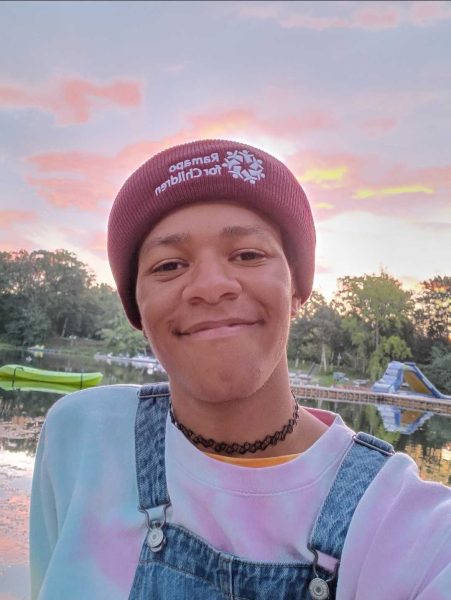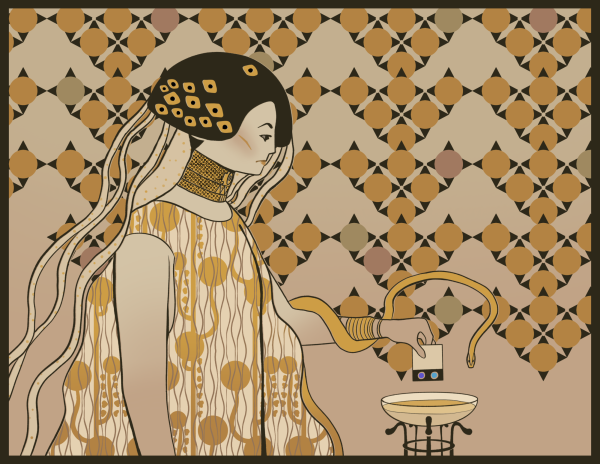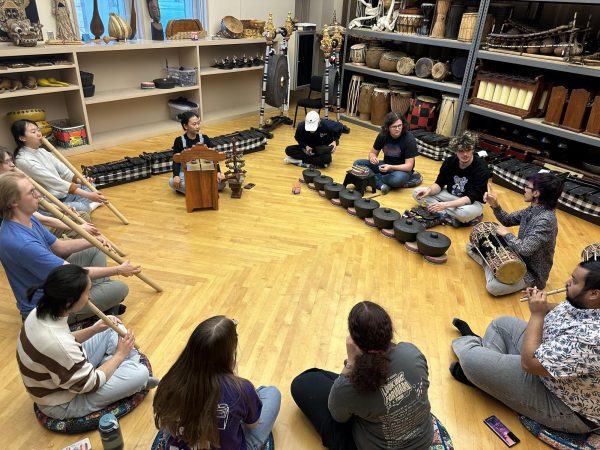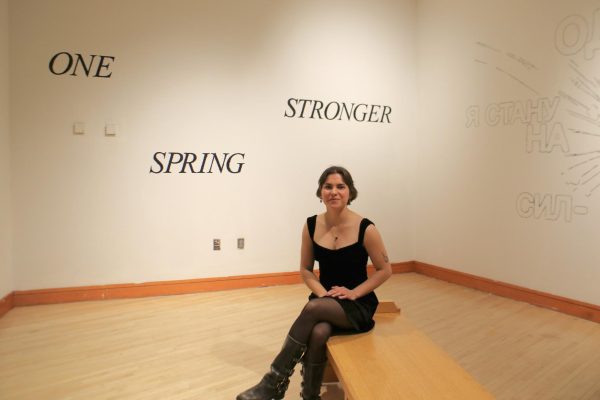Review: This show didn’t need to exist
October 31, 2022
I’ve been an avid horror fan for most of my life. Supernatural horror, monster movies, psychological horror, splatter films, slasher films, body horror, I’ve survived them all; however, if there’s one horror-adjacent genre that icks me to my very core, it’s true crime. So, you can imagine my absolute elation at receiving a birthday gift from Netflix: the new limited series “Dahmer – Monster: The Jeffrey Dahmer Story.” Filmed as a biographical crime drama, the limited series explores the story of the serial killer and the major relationships involved in it.
First, it’s a shame that I’m literate because Netflix has made the most redundant title I’ve ever had the displeasure of reading. Oh, it’s a show about Jeffery Dahmer, and, right, yes, okay, I’d agree he was a monster, and oh, wow, yes, thank you for clarifying that this is in fact a show about Jeffrey Dahmer.
It’s inherently difficult to avoid the glorification of someone like Dahmer, but Evan Peters’ portrayal of Dahmer was actually one of the highlights of the show. I was decently impressed with Peters’ ability to accurately depict the “Milwaukee Monster” as some random awkward white guy who took advantage of how absolutely average he was when picking and attacking his victims. Peters’ Dahmer isn’t imposing; he’s a pathetic shell of a person, desperately emulating human interaction through murder and violence out of compulsion, which is definitely more in line with what I look for in true crime.
However, the rest of the cast are the true stars of the show. Lionel Dahmer, Jeffrey’s father, played by Richard Jenks, makes me absolutely miserable every time he’s on screen in the best way possible. He’s best characterized by his naive denial of his son’s guilt, constantly making excuses to enable and justify Jeffrey’s wrongdoing out of a need to absolve himself of responsibility. Bonding with your schizotypal son by helping him dissect roadkill is the definition of problematically irresponsible. Overall though, the show made me uncomfortable with its desire to “explain” Dahmer’s actions. I certainly don’t need them to perpetuate the narrative that environmental factors, in addition to mental illness, can “make’’ one of the worst serial killers in American history.
Two side plots that left me rather disappointed were Glenda Cleveland’s experiences with the failings of the Milwaukee Police Department and the broader impacts Dahmer’s actions had on the LGBT+ community.
Netflix tagged the show as LGBT+ friendly on release, but the audience is forced to watch as the police prioritize the relative comfort of a white man over any level of investigative ethics. I had to confront the gross reality that an incompetent incel was enabled constantly by law enforcement. Most of the actual engagement with this theme comes from the story of Glenda Cleveland, who spent years reporting Dahmer’s suspicious activity only to be ignored and dismissed. In the context of a show that dramatizes so much of its storytelling, I expected them to use that liberty to make a broader statement about white privilege and underserved communities. Instead, the audience is supposed to sit with an attempt at catharsis when the residents of Dahmer’s apartment bond over the smell of dead bodies in the hallway.
Netflix’s decision to place the show in the LGBT+ category is terribly insensitive considering how traumatic the show can be for queer individuals. It’s understandable to depict the murders due to the nature of the show, but dating and socializing in gay spaces can already be unsafe and exploitative since general society can be specifically dismissive of assault in those spaces. The repetitive scenes of watching Dahmer pick up men at bars becomes emotionally exhausting, excessive and, honestly, unnecessary.
Overall, this show didn’t need to exist. Yes, the production quality was good. Yes, the actors all did an amazing job and yes, I think it was a good idea to split the focus between Dahmer and his victims. Though it does its best to shine a spotlight on the victims and families, it still capitalizes on their suffering. In a world where the families weren’t even warned that the show was in production, I can’t stomach the thought that this is the ninth most popular English-language TV show of all time.







































































